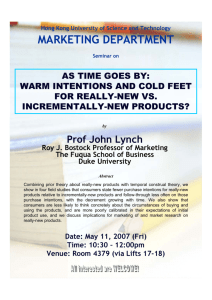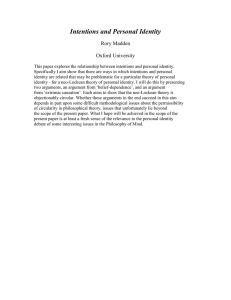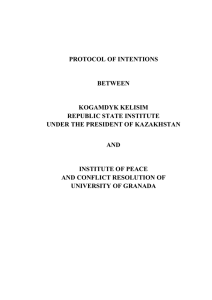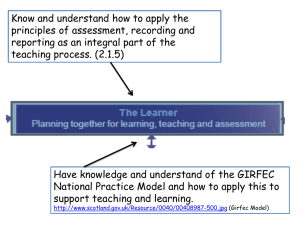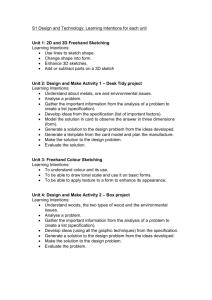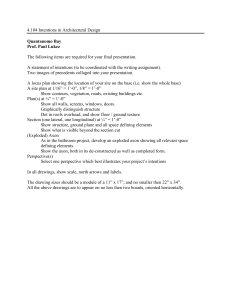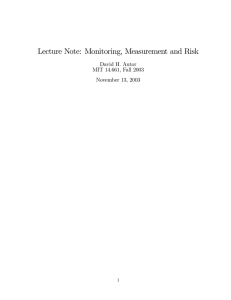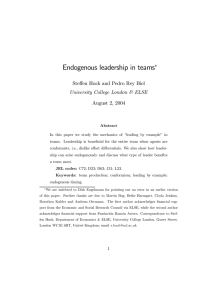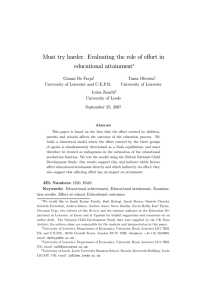Document 13519365
advertisement
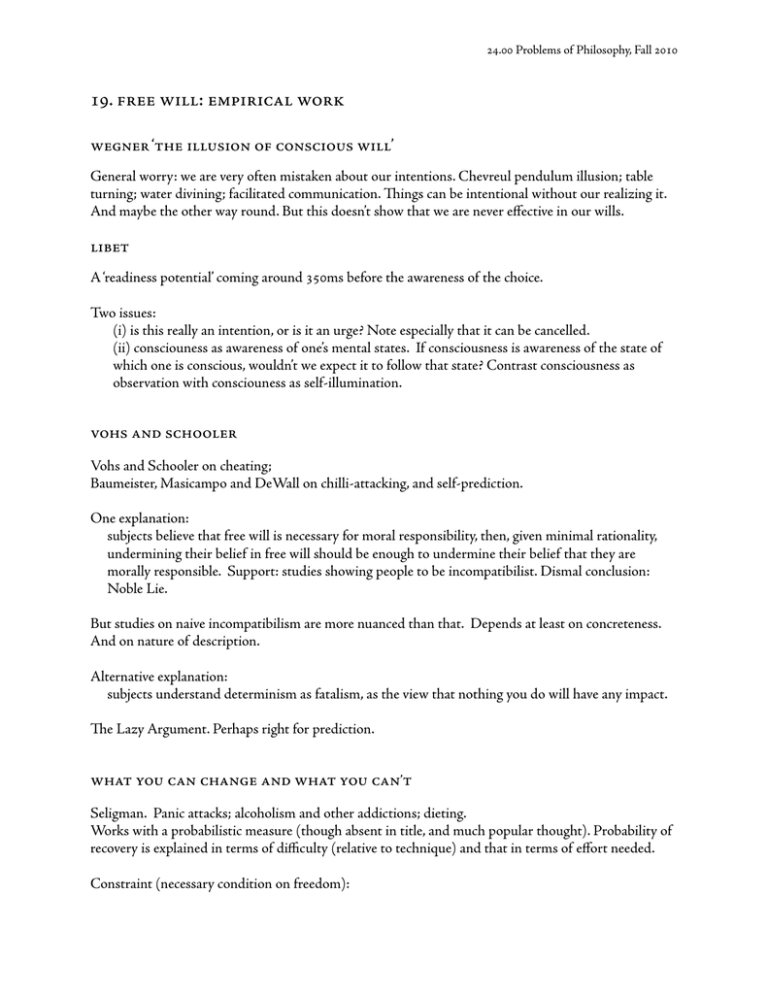
. Problems of Philosophy, Fall . : ‘ ’ General worry: we are very often mistaken about our intentions. Chevreul pendulum illusion; table turning; water divining; facilitated communication. ings can be intentional without our realizing it. And maybe the other way round. But this doesn’t show that we are never effective in our wills. A ‘readiness potential’ coming around ms before the awareness of the choice. Two issues: (i) is this really an intention, or is it an urge? Note especially that it can be cancelled. (ii) consciouness as awareness of one’s mental states. If consciousness is awareness of the state of which one is conscious, wouldn’t we expect it to follow that state? Contrast consciousness as observation with consciouness as self-illumination. Vohs and Schooler on cheating; Baumeister, Masicampo and DeWall on chilli-attacking, and self-prediction. One explanation: subjects believe that free will is necessary for moral responsibility, then, given minimal rationality, undermining their belief in free will should be enough to undermine their belief that they are morally responsible. Support: studies showing people to be incompatibilist. Dismal conclusion: Noble Lie. But studies on naive incompatibilism are more nuanced than that. Depends at least on concreteness. And on nature of description. Alternative explanation: subjects understand determinism as fatalism, as the view that nothing you do will have any impact. e Lazy Argument. Perhaps right for prediction. ’ Seligman. Panic attacks; alcoholism and other addictions; dieting. Works with a probabilistic measure (though absent in title, and much popular thought). Probability of recovery is explained in terms of difficulty (relative to technique) and that in terms of effort needed. Constraint (necessary condition on freedom): . Problems of Philosophy, Fall Given the techniques they have at their disposal, an agent is less free to F the harder it is to follow though on a decision to F. A direct experience of freedom? What is that? Alternative: experience of something that one does (and not just something that happens to one). Two plausible sources: i Choice Where the question of what to do arises, choice is both necessary and sufficient for action. Different choices compatible with same prior beliefs, desires and intentions. Less interesting as a necessary condition, since outside Parkinson’s, depression, and certain forms of prefrontal damage, forming intentions isn’t that hard. ii Maintaining resolutions Intentions and resolutions. Simple intentions: stable (cf. Gollwitzer’s deliberative mindset) and controlling (cf. implementation intentions). Resolutions as intentions designed to control other intentions. Contrast weakness of will and caprice. Resolutions need effort: Seligman’s results; physiological arousal; vulnerability to fatigue, stress, etc; ego depletion. How does this help explain the experience of freedom? Again different outcomes compatible with the same prior beliefs, desires and intentions. (a) people misrepresent a local non-determinism as global. (b) people misunderstand what determinism would be like, as something that is incompatible with changing things by employing effort. Somerset Maugham’s ‘Death Speaks’: ere was a merchant in Baghdad who sent his servant to market to buy provisions and in a little while the servant came back, white and trembling, and said, Master, just now when I was in the market-place, I was jostled by a woman in the crowd and when I turned I saw it was Death that jostled me. She looked at me and made a threatening gesture; now, lend me your horse, and I will ride away from this city and avoid my fate. I will go to Samarra and there Death will not find me. e merchant lent him the horse and the servant mounted it, and he dug his spurs in its flanks and as fast as the horse could gallop he went. en the merchant went down to the market-place and he saw me standing in the crowd and he came to me and said, Why did you make a threatening gesture to my servant when you saw him this morning? at . Problems of Philosophy, Fall was not a threatening gesture, I said, it was only a start of surprise. I was astonished to see him in Baghdad, for I had an appointment with him tonight in Samarra. Sheppy, Act III Compare time-travel stories, Oedipus and many other Greek myths. Effort makes no difference. Worse than dieting. Hypothesis: in the popular (and, frequently, the scientific) imagination, determinism is run together with fatalism. Encouraged by mechanistic descriptions of determinism; and plausibly by claims of predictability. Lazy argument. at is a mistake. Effort does make a difference. But believing it undermines subjects’ self-efficacy. Reading deterministic passages undermines self-efficacy, and so stops agents trying to overcome their inclinations. In particular, moral motivation diminishes. Standard seduction method. Rodolphe to Emma Bovary: Come what may, sooner or later, in six months, ten years, they will be together, will be lovers, because Fate ordains it, because they were born for each other. (Oh! N’importe, tôt ou tard, dans six mois, dix ans, elles se réuniront, s’aimeront, parce que la fatalité l’exige et qu’elles sont née l’une pour l’autre.) Madame Bovary, eme partie, Ch. VIII And now applying the lesson to them: Look at us … why did we meet? By what decree of Fate? It must be because, across the void, like two rivers irresistibly converging, our unique inclinations have been pushing us towards one another. (Ainsi, nous … pourquoi nous sommes-nous connu? quel hazard l’a voulu? C’est qu’a travers l’eloignement, sans doute, comme deux fleuves qui coulent pour se rejoinder, nos pentes particulières nous avaient poussés l’un vers l’autre.) Ibid. e demotivation is based on a mistake. So no need for illusions about freedom. Rather a need for more accurate understanding of determinism. Test: do dieters etc. tend to lose their motivation after reading deterministic texts? MIT OpenCourseWare http://ocw.mit.edu 24.00 Problems in Philosophy Fall 2010 For information about citing these materials or our Terms of Use, visit: http://ocw.mit.edu/terms.
